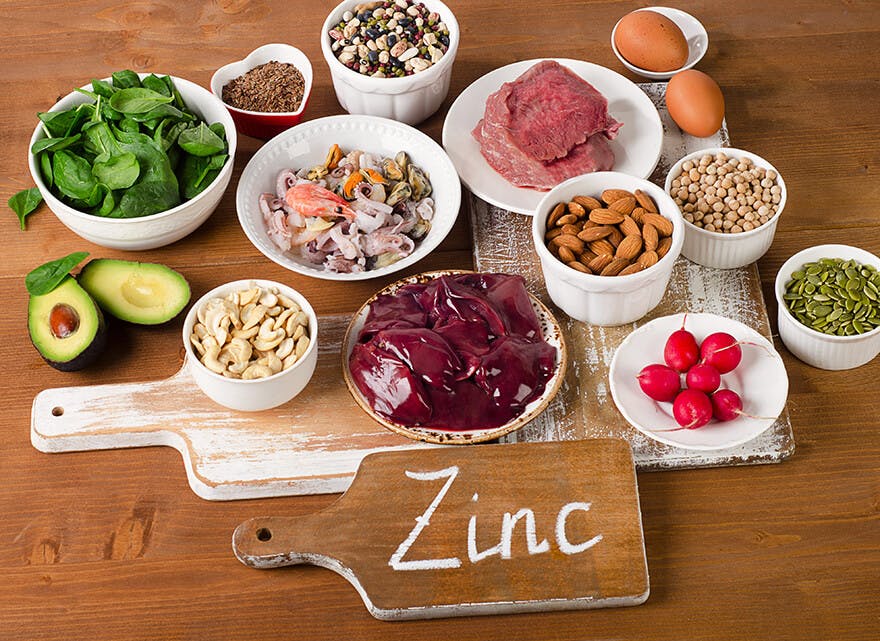The fight for immunity requires more than just Vitamin C
VITAMINS & MINERALS
11.24.2017

Africa Studio/Shutterstock.com
When talking about the health of one’s immune system, it’s hard not to immediately think of Vitamin C. After all, Vitamin C is an anti-oxidant known to combat free radicals and prevent a host of damaging diseases.
Although supplementing our diet with Vitamin C alone is highly beneficial, our body also requires help in the form of other nutrients and minerals to keep our immune system strong and healthy.
Unfortunately, the warning signs that our body is in need of these minerals and nutrients are either too subtle or too easily mistaken as the result of stress. Hence, it is important to take note of symptoms such as:
- Chronic fatigue
- Frequent colds and sore throat
- Allergies
- Wounds take too long to heal
If you tick one, all, or a combination of any of the above symptoms, then you may want to consider supplementing your diet with:
Zinc

bitt24/Shutterstock.com
Like Vitamin C, Zinc helps with the prevention of free radical-induced injuries as it is capable of functioning as an anti-oxidant. While Vitamin C increases the production of white blood cells that help your body fight infections, zinc provides assistance by increasing thymulin activity which in turn aids in the proper functioning of T-cellsi. T-cells help other immune cells identify and fight bacteria, viruses, and parasites.
Manganese
While manganese does not directly impact one’s immune system, it is a component of the antioxidant enzyme superoxide dismustase (SOD) which helps neutralise free radicals and help prevent damaging health conditions such as heart diseaseii.
In the healing of tissue, manganese, along with Vitamin C helps stimulate and activate key enzymes in the formation of collagen.
Iron

Maridav/Shutterstock.com
Iron is essential for the formation of hemoglobin which supplies oxygen to white blood cells that protect our body against infectious diseases. When supplemented together, Vitamin C, also known as ascorbic acid facilitates the absorption of ironiii.
Adequate iron in your diet also means your body can carry oxygen to your muscles, improving physical performance for the all-important requirement in keeping healthy: exercise.
Selenium
Selenium is an essential nutrient that is involved in regulating oxidative stress, an imbalance between anti-oxidants and free radicals that can cause conditions such as chronic fatigue syndrome and inflammatory diseases.
There is even evidence to suggest that selenium plays a role in the reduction of risk of colorectal, prostate, and lung canceriv.
Magnesium
Apart from helping regulate blood pressure and strengthening muscles and bones, this naturally-occurring mineral found in our bodies has been known to support the immune system. A deficit in magnesium can lead to impaired cellular immune functionv.
In the case of the elderly, insufficient intake of magnesium-rich diet can increase one’s vulnerability to age-related diseasesvi.
Calcium

ESB Professional/Shutterstock.com
Everybody knows the importance of calcium in building strong bones and teeth. But calcium also has a role to play in the workings of our immune system. While not directly related to infection-fighting cells, calcium acts a signal that activates enzymes that attracts white blood cells to a wound which fights off invading microbesvii.
The immune system is something that is not very well understood which can often lead to neglect on our part. But, one thing is clear, in order for it to function at an optimum level, our immune system requires more than just Vitamin C.
- Ananda S Prasad (2008). Zinc in Human Health: Effect on Zinc on Immune Cells. US National Library of Medicine National Institutes of Health.
- http://www.umm.edu/health/medical/altmed/supplement/manganese
- Lynch SR, Cook JD. Interaction of vitamin C and iron. US National Library of Medicine National Institutes of Health.
- Peter R. Hoffmann, Marla J. Berry (2013). The influence of selenium on immune responses. US National Library of Medicine National Institutes of Health.
- Laires MJ, Monteiro C. (2008). Exercise, magnesium and immune function. US National Library of Medicine National Institutes of Health.
- M Tam, S Gómez, M González-Gross, A Marcos (2003). Possible Roles of magnesium on the immune system. European Journal of Clinical Nutrition.
- University of Bristol (2013). Calcium is initial trigger in our immune response to healing. ScienceDaily.
Recommended Articles
The 5 Best Foods That Will Help Supercharge Your Brain
Amidst our busy schedule, it's important to retain our focus and memory. Resting alone is not...
Iron deficiency is a lot more common than you would think. A recent survey by SATA CommHealth(i...
Mars vs Venus: Understanding the His and Hers of Nutritional Needs
Mars vs Venus: Understanding the His and Hers of Nutritional Gaps Although their DNAs are...






